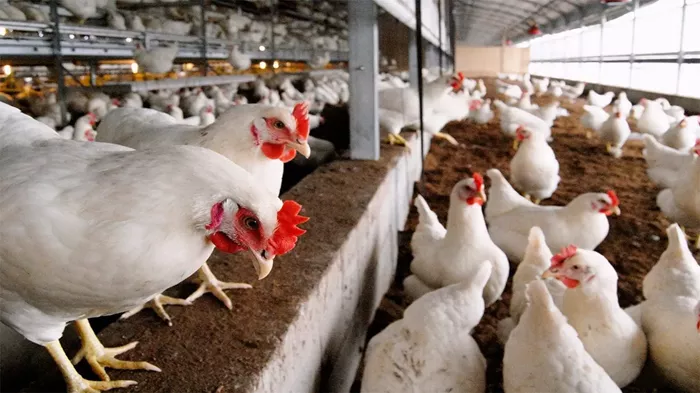In a concerning development, a 65-year-old individual in Louisiana has been hospitalized in critical condition after contracting the H5N1 bird flu, marking the first severe human case of this strain reported in the United States. The Centers for Disease Control and Prevention (CDC) confirmed on Wednesday that the individual had been exposed to an infected backyard poultry flock. However, officials stressed that there have been no confirmed cases of person-to-person transmission.
The CDC’s announcement sheds light on the growing concern surrounding the spread of bird flu, particularly among non-commercial flocks. Demetre Daskalakis, director of the CDC’s National Center for Immunization and Respiratory Diseases, clarified that while the case is serious, the immediate risk to public health remains low. This case is notably the first in the U.S. tied to a non-commercial flock, underlining the importance of monitoring backyard poultry and other domestic animals for signs of infection.
“While the current risk to the general public is low, we continue to monitor the situation closely,” said Dr. Daskalakis. “This case does not alter our overall assessment of the threat posed by H5N1, but it underscores the need for vigilance, particularly in areas with high exposure to poultry or livestock.”
Experts continue to closely watch the situation as bird flu spreads among both wild bird populations and livestock. As of now, the U.S. has reported 61 confirmed human cases of avian flu, most of which were linked to exposure to sick poultry or dairy cows. Of particular concern is the recent detection of bird flu in U.S. dairy cattle, a first for the country.
The U.S. Department of Agriculture (USDA) reported that since the first confirmed case in cattle on March 25, there have been significant outbreaks in dairy herds across 16 states. California has been hit especially hard, with 37 human cases associated with infected dairy cattle in the state. In response, California Governor Gavin Newsom declared a state of emergency on Wednesday, bolstering state efforts to contain the outbreak.
“California is deploying its largest testing and monitoring system in the nation to combat this outbreak,” Governor Newsom said. “While the public health risk remains low, we are committed to taking every necessary step to prevent the further spread of this virus.”
In a critical move, the USDA has mandated testing of raw, unpasteurized milk from dairy herds nationwide, beginning on December 6. The goal is to track the spread of bird flu among cattle and to gather data on its potential human transmission. While some farmers have resisted mandatory testing, federal authorities are ramping up efforts to trace the disease more effectively.
The CDC confirmed that the H5N1 strain found in Louisiana is distinct from the one affecting dairy cows, with the former identified as the D1.1 genotype. However, the situation is evolving, and health officials continue to monitor both human and animal cases closely.
While the risk of a bird flu pandemic remains low, the appearance of severe cases like the one in Louisiana serves as a reminder of the importance of proactive monitoring, especially in areas where poultry and livestock are concentrated. Experts urge the public to remain informed about the risks and follow guidelines for preventing exposure to the virus.
In light of this first severe case, authorities are reaffirming their commitment to preventing further spread and ensuring a rapid response to any future outbreaks. As investigations continue, health officials are encouraging anyone with exposure to potentially infected animals, especially backyard poultry, to seek medical advice if they experience symptoms of illness.
This first severe human case of bird flu in Louisiana serves as a critical moment in the ongoing battle against avian influenza in the U.S. While the risk remains low to the general public, vigilance and preventive measures remain essential. Health authorities, including the CDC and USDA, are taking decisive actions to mitigate the spread of the virus and safeguard public health. The situation continues to evolve, and further updates will be provided as more information becomes available.
Read more:
- Start The Year Right: Top Tips For Keeping Your Pet Healthy In 2025
- Could Psychedelics Offer New Hope For Mental Health In Autistic Individuals?
- Tennessee Woman Arrested For Distributing Counterfeit Weight Loss Drugs


